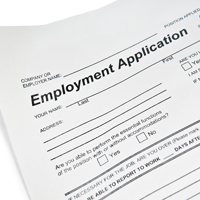What Should Businesses Know About Non-Compete Agreements?

Businesses must do what they can to protect themselves, and they must be cognizant of what happens when employees leave. Proprietary information, trade secrets, client lists, and other resources may be involved. Therefore, it may be necessary to create a non-compete agreement for each new employee. A business must understand how these agreements can benefit employees, as well as what it should do to make these non-compete agreements seem appropriate. These documents might also be known as non-poaching agreements, as businesses hope to keep their employees under their roof.
Although these agreements can be signed with an employment contract, they must be drafted properly, and appear reasonable and enforceable. As business owners and managers consider the advantages and disadvantages of these agreements, they should also reach out to a Philadelphia employment lawyer who can help them make wise decisions going forward.
What is a Non-Compete Agreement?

A non-compete agreement is a contract stating that the employee will not work for a direct competitor for a certain period and in a certain area after the employment contract is terminated. These agreements bind the employee to the corporation for a certain period. However, this agreement only stops the employee from working for a direct competitor.
For example, an expert plumber who works for a kitchen remodeling company may sign a non-compete agreement that prohibits them from working for another remodeling company, improving their services, or causing the original employer to lose money. On the other hand, if that plumber goes to work for a well maintenance and installation company, the non-compete agreement likely does not apply. Non-competes are often based on geographical locations, so if the plumber moves hundreds of miles away to work for another remodeler, the non-compete agreement would not apply. Employers cannot bar their ex-employees from working forever, and they only have so much latitude when creating these agreements.
What is Needed When Adding Non-Compete Agreements to Employee Contracts?
Non-compete agreements must have language that explains why they are necessary in the first place. These agreements must explain why the business requires a non-compete agreement be signed by each employee. The following items constitute valid reasons:
The employee will be privy to trade secrets. When businesses share trade secrets with their employees, they hope that those employees remain with the company for a long time. If those trade secrets were to leave the building, the business could lose a lot of money. Another option might be a confidentiality or non-disclosure agreement that prevents the employee from sharing private information from previous employers.
The employee received specialized training that would help them directly compete against the company. If the employee has been trained to do a specific job, the business loses its investment when the employee leaves. The business must show that it provided extraordinary training that the employee might not have received elsewhere. At the same time, the business must show that it will be irreparably harmed if an employee with said training leaves for a competitor.
The employee possesses confidential information that could be used against the business. Employees might possess confidential information about the business, and that business needs time to adjust when the employee leaves. The employee might also have longstanding relationships with customers.
The employee has a longstanding relationship with customers who would leave if that employee exited the company. Some customers will not work with a business when their favored employee leaves. Barring the employee from going to a direct competitor instantly helps the business retain those customers.
The company would lose a certain amount of goodwill because the employee is no longer employed. Businesses that wish to create non-compete agreements must be prepared to show that they are in these situations. If these agreements do not explicitly state why they should be enforced, they may not be upheld by the courts.
How Do Businesses Enforce Non-Compete Agreements?
Businesses must assume that an employee who is moving to a direct competitor will need a reference. Although the business has a signed non-compete agreement, it must be willing to present that signed contract to the competitor that wishes to hire away valued employees. At the same time, a business needs a lawyer that can stand by the non-compete agreement that was written. A lawyer must be involved to give the agreement credence. The same is true if that agreement must be enforced in court. It is difficult for a lawyer to enforce a document that was not written properly. If a business must go to court, it will explain that the employee is bound by the agreement and that the business upheld its part of the contract.
Should Businesses Worry About Poaching?

Businesses do not want their employees to leave suddenly and take with them information or customers. At the same time, businesses must be concerned about poaching, which occurs when another business offers someone more money, a better position, and more benefits. The company that hopes to poach employees will be met with a non-compete agreement. Some companies even call these documents non-poaching agreements. The employee is likely compensated very well, and they are asked not to speak with other companies in the area. The employee also knows they are working under a non-compete or non-poaching agreement.
If a business has every employee sign one of these agreements, it can reduce turnover and poaching. Although these documents have been drafted by a lawyer, the business should also be prepared for legal battles with businesses who want to hire disgruntled employees.
What Situations Should Businesses Avoid?
Businesses must ensure that they are fulfilling all obligations under their contract. When a contract is signed by both parties, the employee expects the employer to act on good faith for all other parts of the contract. If the employer is not paying the appropriate wages, offering certain benefits, or providing the perks that are laid out in the contract, that contract is null and void.
This means that the employee can get out of the contract and essentially nullify the non-compete agreement. There are some employees who are looking for any chance to get out of their contract. For example, a business that promises Christmas Eve off for all employees cannot ask someone to work that day. When that employee wants to leave for a direct competitor, they will claim that the contract was nullified when they were forced to work on Christmas Eve.
If a business claims that it provides extraordinary training to its employees at great financial cost, it must provide that training. When an employee wants to leave, they can clearly show that the training was not provided or that the training could not be completed. In short, a business must be as stringent as possible when policing itself. If managers violate the terms of an employee’s contract, the business may not have much recourse.
Is a Company’s Non-Compete Agreement Reasonable?
In New Jersey, the courts expect that a non-compete agreement fulfill the following criteria:
The agreement does not last for an inordinately long time. If the non-compete agreement lasts less than six months, the court is likely to rule in favor of that agreement. If the agreement lasts up to two years, the court is less likely to believe it has any real effect.
It legitimately protects the business from hardship. A business must show that it would experience severe hardship if the agreement was not enforced.
It does not produce undue hardship for the employee. An employee cannot be forced to experience undue hardship because of the agreement. There must be a balance in the document that can be provided by an employment lawyer.
It is not working against public interest. When a non-compete agreement is executed as part of the sale of a business, the court is more likely to look favorably on that agreement. For example, someone who sells an automobile repair shop might have a non-compete agreement signed along with the sale. It would be unfair for that mechanic to sell their business and then open another shop down the street. This is more than fair to both parties; the seller is getting paid, and the buyer is purchasing a customer base that is not moving down the street.
It covers an appropriate geographic area. The geographic area covered by the non-compete agreement should not be too vast. Employees should be allowed to move away for new opportunities, but they are often barred from moving down the street to a new company. The business, however, may not be allowed to restrict competition in a completely different city. For example, an employee who is moving to Boston from Philadelphia cannot be barred. Companies must balance their needs with the needs of an employee who should be allowed to make a living.
Are There Disadvantages to a Non-Compete Agreement?
Although a business might want to use non-compete agreements to keep employees in place, these agreements can cause issues. Someone who is close to signing on with the company might not sign a contract because they do not want to be restricted by a non-compete agreement. A skilled employee may believe that the business is being unreasonable by insisting on a non-compete agreement and leave the industry because they feel their bargaining power has been reduced.
How Do Employees Benefit from a Non-Compete Agreement?

Employees might see a non-compete agreement as a limiting document. The truth is that a non-compete agreement incentivizes the business to train its employees and invest in their happiness. Benefits for employees include the following:
- The business must provide costly training that binds the employee to the company under the non-compete agreement.
- The business typically pays more money to make the non-compete agreement seem reasonable to the employee.
- The business can give employees more responsibility and potentially allow them to work with more customers.
In these instances, both the business and the employee benefit. When a business works with a lawyer to draft the agreement, they can explain these benefits to employees. Additionally, the business can hire the best talent without scaring them off.
Do Businesses Need a Lawyer’s Assistance?
Businesses should reach out to an employment lawyer when hoping to generate a non-compete agreement that is fair and enforceable. Companies should not draft their own documents, hoping that they will hold up in court. The agreement must be written with the appropriate language by an experienced lawyer. Also, businesses must contact a lawyer when they need to enforce one of these agreements. An employee may want to get out of their contract, and a business has every right to avoid any hardships or monetary damage caused by the employee’s exit.
If a company wants to add a non-compete agreement to each employee contract after the fact, it will need assistance from a lawyer. A lawyer will need to create the document and explain to employees why it is necessary. A business can protect itself without adversely affecting morale in the office. Businesses also need assistance if another company is challenging its non-compete agreement. A disgruntled employee may want to leave, and their potential employer may mount a legal battle over the non-compete agreement.
Philadelphia Employment Lawyers at Sidney L. Gold & Associates, P.C. Help Manage Non-Compete Agreements
Speak to the Philadelphia employment lawyers at Sidney L. Gold & Associates, P.C. when there are questions about non-compete agreements. We have the knowledge and experience in this area to guide and assist businesses in drafting such agreements. Call us today at 215-569-1999 or contact us online for a free consultation. Located in Philadelphia and Pennsauken, New Jersey, we serve clients throughout Wilkes-Barre, Scranton, northeast Philadelphia, Bucks County, Chester County, Delaware County, Montgomery County, and South Jersey.































